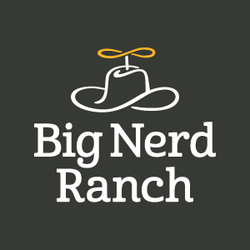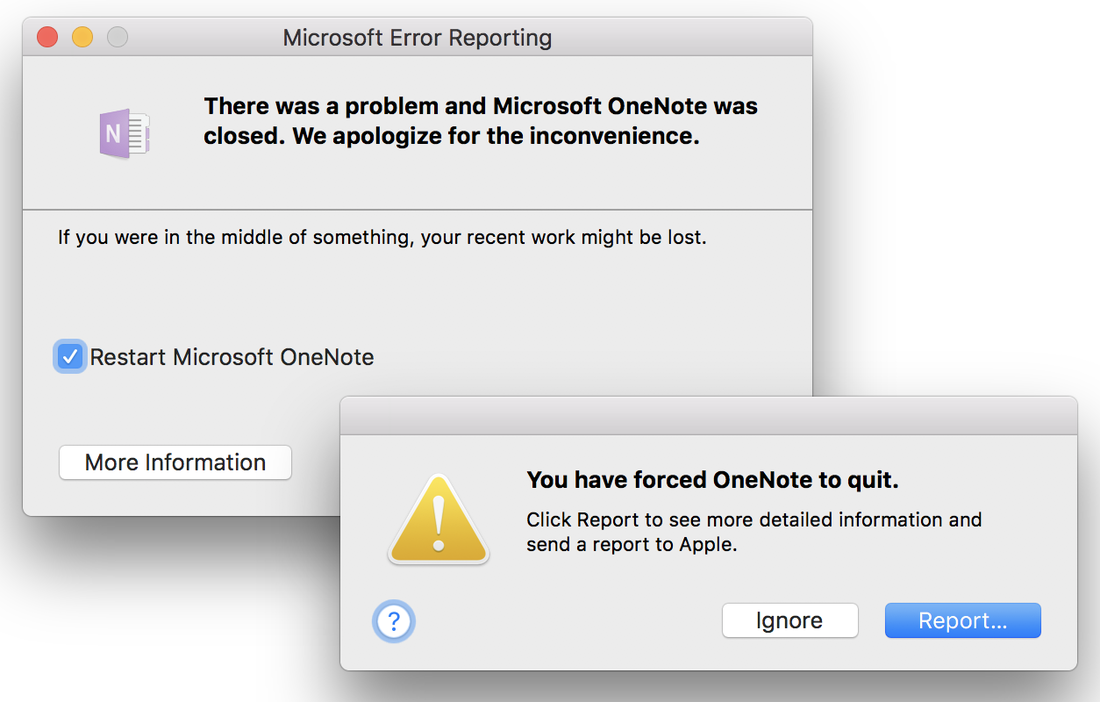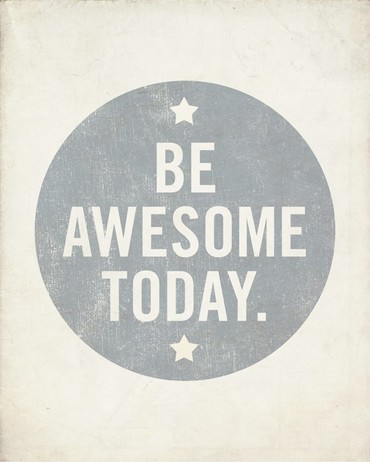|
My name is Jon, and I'm a learn-o-holic. I am learning right this very second, and so help me, I will never stop. [Chorus of voices circling me]: Hi, Jon. While an avid learner, my brain has a habit of being somewhat teflon-like: Nothing sticks. This is quite undesirable. I want at least some of the things I hear/read/watch to stick around for future use. Therefor note-taking is exceptionally important to me. Over the years, as a computer fan-boy (regardless of OS), I became much faster at typing than at writing, so I started taking notes on a laptop. Initially, I just used Microsoft Word documents, and it was beyond glorious. Where others had scribble on paper, I had neatly organized outlines with images and links dragged in for details and clarification. Classmates who knew my note-taking style would always ask for a copy if they missed a class. One classmate tried to buy the whole set after attending almost zero classes. My years of frantically flipping through my own horrific handwriting searching for some specific concept were over, and replaced with beautiful and nearly instantaneous search functionality. Even better, by using a search, I find ALL the information about a topic... Not just what I learned on one particular day. No more notes muddied up or destroyed by spilled coffee. No more panic attacks while looking for my lost notebook, that somehow made it's way into the recycle bin. I was in love. Since my early days of using MS Word for note taking, I have tried out numerous solutions, and my requirements for a note-taking solution have grown as well. Here's what I think is important at present:
What have I tried, and why were they insufficient? I'm glad you asked. What didn't work for me might fit your own needs just perfectly!
I only met you yesterday, Dropbox Paper... But I had never even heard of you, and I'm a notes-loving-nerd! I'm a little embarrassed to have been caught by surprise by this bad-boy, but now I'm making up for lost time. I've copied all the notes I've taken for the past couple of days, and pasted them into a Dropbox Paper notebook, and now used it to take notes at a couple of new talks I've just attended. I'm learning the tips and tricks as I go, and the functionality is suiting my needs quite well. I really love the little keyboard-shortcut cheat-sheet you can have open on the right margin of the web app. Here's why I'm loving "Paper" so far:
By tomorrow, I may have found the fatal flaw that makes me move on from my Dropbox Paper affair, but for now, I'm in total puppy-love with the thing, and I'm going to try to rock it throughout my week-long conference. What's your favorite note-taking tool? I'd love to know what it is and why.
0 Comments
Most software teams I've had the chance to work or interact with have at least some degree of trouble regarding "knowledge silos". You know you have an issue with silos on your team when work grinds to a halt if a particular developer is out sick, or on vacation. You know you have a silo when one top developer is doling out work to less senior developers while not giving any of them enough of the big picture to truly understand how their part of the code/project works with others. When they finish their small task, they have to get back in line to see what needs to happen next. You know you have a silo when one of your team members is afraid to take a vacation, because everything will fall apart without them there. You know you have a silo when you send an employee to an expensive conference, but s/he winds up answering emails or putting out fires no one else can half the time, vastly reducing the benefits that might be gained from the conference.
Some software teams try to mitigate the risk of knowledge silos by practicing "pair programming" (the folks over at Atlassian may have the most entertaining take on this). Two developers work at a single computer, working on the same feature or issue. There are a number of potential advantages: Someone else is always reviewing your code as you go, so there is no need for a separate code review later on. Your partner is just as familiar as you are with every change you make, so when one of you is sick or on vacation, the rest of the team is not stuck in the mud. When one member of a pair knows more about something, the other gets the opportunity to learn (meanwhile the more experienced developer gets the rewarding experience of teaching and helping a peer level-up). Woody Zuill took the idea of pair programming significantly farther with something he called "mob programming", and it's not just a theory. He implemented the practice at Hunter Industries, based in San Marcos, CA. Mob programming is a development paradigm where a whole team of engineers (approximately 5 developers, give or take) work at just one computer to develop software. My hunch is that most managers, and even most software engineers would initially have a viscerally negative reaction to this idea. How productive can you possibly be with everyone at the same machine, working through tasks serially rather than in parallel? The proof is in the pudding, when it comes to software development, and Hunter has discovered the mob programming pudding is absolutely delicious! The knowledge sharing and learning opportunities for the whole team are absolutely unparalleled. There is virtually zero risk of a knowledge silo developing under this paradigm, so there's no problem with any one person going on vacation, winning the lottery, developing the next Angry Hamsters and striking app-gold, or anything of the sort. So what is it like on a software development mob? Here it is: A time-lapse video from the original mobbing team at Hunter Industries, long before I was lucky enough to join the team. It seems a bit unreal, but that actually is what our day looks like, even now that the mobbing paradigm has grown to be 5 or 6 development mobs working in parallel on different projects, or parts of projects at any given time. As a testament to how happy those developers are, almost every one of the developers you see in that video (which is from 2012) is still on the team, and they are now my co-workers (incidentally, we just made a re-boot of the original mob programming time-lapse, now that we've expanded to as many as six simultaneous mobs!). As a testament to the quality of the results, Hunter expanded the mobbing program from just one team working only on internal applications to a whole department working on both internal and external facing software. And yes, we're hiring, so if this sounds as good to you as it did to me, come have a look at Hunter's job site. Mob programming is certainly not for everyone, and it is not for every company in every situation. As always, there is no silver bullet. That being said, below are a few of the reasons I love it, and why I think it's an option worth exploring for any team:
If this sounds appealing, give it a shot! Here are a few further resources to get you going:  As I grow older and older (...and older, and older, annnnnd older), I find that I have obtained a fairly amazing state of laser-like focus on my excessively high falutin annual goal: To be a slightly less horrible developer this year compared to last. My normal ticket to ride for this recurring theme revolves around sites like Pluralsight and my newest video training sweetheart, TreeHouse. But I got all excited about a potential opportunity to join a new mobile team and splurged on some great training this year. It's like a luxury vacation, except it's really hard work, and your brain comes out the other side feeling like a bowl of oatmeal that just got shot out of a giant potato gun. It's not pretty, but damn it's fun. It's tough to choose a training course... They're expensive, and reviews are far and few between. I have occasionally considered attempting at least a temporary career of jetting around to tons of different courses writing up reviews. Wouldn't a site like that be awesome?? As soon as I find my buried treasure, I'm on it. Until then, here's my take on the 7 day course, "iOS Essentials With Swift" offered by the Big Nerd Ranch. Short version: It's absolutely awesome. Go sign yourself up.  Me as a fledgling developer Me as a fledgling developer Longer version: I have now been to The Ranch twice. My first experience was in 2007. The first iPhone had been released, but there was no official SDK yet, and Steve Jobs was telling developers to write web apps. I took the class to learn Objective-C and Xcode, in hopes of writing software for the Mac. I was very new to software development, barely understanding the field at all. Despite my high hopes, the class proved too much for me. My minuscule bits of experience with BASIC, Java and Visual Basic in conjunction with my tiny brain (which resides in a cozy, but overly thick cranium) were not enough to get me over the hurdles of Objective-C and the bits of C one had to dip into on occasion. "Interface Builder" was a nightmarish maze (not to mention a completely separate application from Xcode) compared to the ease of use of the visual designer in Microsoft's Visual Studio IDE. I actually cried. I was terrified that I was simply too stupid to be a developer, and this was a painful wakeup call to let me know that I might be better suited to... pretty much anything. /* Here it is, the most important part of this post */ Don't be discouraged! The fact is that I had failed to prepare. I tried to take on two new languages, a new code editor and a new UI designer knowing next to nothing, and I expected to be spoon fed at the training. When that spoon turned out to be an over-sized steel shovel, I was caught completely off guard! It's been frighteningly close to a decade since that fateful experience, and I actually did somehow manage to become a software developer... Just not for Mac apps, and not with Objective-C. I've been eyeing iOS development with envy and desire for a number of years now, and when an opportunity arose at my current company to potentially jump on a new mobile dev team, I jumped at it... But not quite like I did back in 2007.  2016 me thinking I am a code ninja 2016 me thinking I am a code ninja The 2016 version of me decided to start preparing immediately. This is the absolute best advice I can provide, regardless of whether you're planning to hit the Big Nerd Ranch, some other organization's training course, or even just hitting up some local user groups (Meetup.com tends to be a great resource for finding them): You will get infinitely more out of any training, conference or talk with a little prep-work. When you're at the actual event, you'll have peers and experts around to ask questions and play with ideas. Do you want to ask how to declare a string variable, or do you want to ask how to work with strings to internationalize your app? Do you want to ask how to hook up a click handler, or do you want to ask about the underlying command pattern so that you can create a reasonably well architected solution? The amount of legwork you put in up front will pay off in dividends with respect to how much you get out of any training, conference or talk you attend. The Big Nerd Ranch will send you some pre-reading to do, but it is very elementary, and I would strongly encourage you to spend more time learning the basics and getting familiar with the tools you will be using. Things will come easier and faster to you with that pre-work under your belt, and that can make the whole experience not only more valuable, but also a whole lot more enjoyable! Once you've got some prep-work out of the way, you're ready for class. Because these classes cost so much, you really want them to be intense. Most of us cannot afford to go to one of these classes more frequently than once every few years. If you are lucky enough to have a company willing to send you to a training like this, grab that opportunity with both hands and milk it for all it's worth! If not, I feel your pain... And it's that much more important to get as much as you can from the whole experience. There are a few key factors that I feel set the Big Nerd Ranch apart from any other organization I've had the chance to work with and learn from:
So if the time is right for you to level-up, and there's a course that fits what you want to learn at the Big Nerd Ranch, it gets my absolute highest recommendation. As for myself, I definitely feel like I have a significant leg-up on my goal of becoming a less horrible developer this year, so I'm patting myself pretty hard on my nerdy back. Go rock out, and be awesome! |
AuthorJon Bachelor: This geek goes all the way to 11. Archives
March 2019
Categories
All
|
| jonny b |
|



 RSS Feed
RSS Feed
